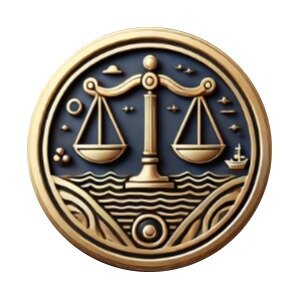Best Work Permit Lawyers in Pattaya
Share your needs with us, get contacted by law firms.
Free. Takes 2 min.
List of the best lawyers in Pattaya, Thailand
Thailand Work Permit Legal Questions answered by Lawyers
Browse our 1 legal question about Work Permit in Thailand and read the lawyer answers, or ask your own questions for free.
- Earn commissions on sales in thailand
- I am new tiktoker, i set up in Indonesia where i had a work visa. I am French Citizen on holiday in Thailand. Can I earn commissions from sales of Thai sellers? I got 2 months on arrival visa and am Digital Nomad working as freelance for an America based...
-
Lawyer answer by SPECTER CK & PARTNERS
Switch to a Business Visa. If you plan to work with Thai sellers regularly, you should apply for a Non-Immigrant B Visa and obtain a work permit. You also can earn commissions via a foreign entity. You could set up...
Read full answer
Thailand Work Permit Legal Articles
Browse our 3 legal articles about Work Permit in Thailand written by expert lawyers.
- Legal Implications of Remote Work in Thailand
- Remote work, often referred to as telecommuting, has emerged as a dominant trend reshaping global employment landscapes. For Thailand, a country known for its digital nomad appeal and vibrant expat community, the rise of remote work brings unique legal, cultural, and operational considerations. Our comprehensive guide here explores the legal... Read more →
- Legal Considerations for Digital Nomads in Thailand
- There is no denying Thailand's appeal to digital nomads. It has grown to be one of the most popular locations for digital nomads globally because of its vibrant culture, varied scenery, low cost of living, and expanding community of remote workers. Nonetheless, there is a complicated web of legal requirements... Read more →
- What Documents are Needed for a Work Permit in Thailand?
- Obtaining a work permit is an essential first step if you want to work in Thailand. A legal document known as a work permit enables a foreign citizen to work in Thailand. It describes the kind of employment, the employer, and the workplace. Working in Thailand without a valid work... Read more →
About Work Permit Law in Pattaya, Thailand
In Pattaya, Thailand, a work permit is an official document issued by the Ministry of Labour that allows a foreign national to legally work in the country. These permits are crucial for maintaining the legal status of expatriates who wish to work in Thailand, including Pattaya. The process of obtaining a work permit can be complex, involving various legal and bureaucratic steps. It is important to understand that working without a valid work permit in Pattaya can lead to legal penalties, fines, deportation, or even blacklisting.
Why You May Need a Lawyer
Navigating the work permit process in Pattaya can be challenging due to the intricate legal requirements and potential language barriers. Here are common situations when legal assistance might be needed:
- Understanding eligibility requirements and the specific documentation required for your industry.
- Addressing issues related to work permit renewal, amendments, or cancellations.
- Resolving legal disputes with employers about work permit conditions.
- Advising on immigration matters that affect your ability to work in Thailand.
- Assisting with compliance requirements to ensure the legality of employment.
Local Laws Overview
The Thai Labour laws applicable in Pattaya dictate that certain categories of work are restricted to Thai nationals only. Foreign workers must fit into approved roles and industries to qualify for a work permit. Additionally, the country's Alien Employment Act outlines the penalties for non-compliance, which can be severe. Key aspects of local laws include:
- Detailed employment contracts that adhere to the Thai Labour law standards.
- Specific durations and renewability of work permits depending on visa types.
- Requirements for reporting address changes and maintaining valid visa status.
- Employer responsibilities, including the need to sponsor and apply for the work permit on behalf of the foreign national.
Frequently Asked Questions
What qualifies as work in Thailand?
Any activity that complies with the definition of a job in local labour law, for which a regular reward from an employer is made, requires a work permit.
Is it possible to convert a tourist visa into a work permit?
No, it is not possible to directly convert a tourist visa into a work permit. You must apply for a non-immigrant visa first.
Can I work in Pattaya with a long-term visa and without a work permit?
No, irrespective of visa status, a work permit is mandatory to engage in employment activities in Thailand.
How long does it take to obtain a work permit in Pattaya?
It can take around 7-10 business days from the time all necessary documents have been submitted, though this can vary based on individual circumstances.
What documents are required to apply for a work permit in Pattaya?
You will need to provide a valid passport, a visa that permits work, educational and professional qualifications, and the details of your employer, among others.
Are there any professions that foreigners cannot work in?
Yes, there are certain professions reserved for Thai nationals such as hairdressing, tour guiding, and labor work in agriculture or construction without specialized skills.
Can a work permit be used in any part of Thailand?
No, a work permit is specific to the location and job described in the application. If you change your job or location, you will need to amend your work permit.
What should I do if my work permit is due to expire?
You should apply for a renewal at least 15 days before the expiration date with your employer's assistance.
What are the penalties for working without a permit?
Penalties include fines, deportation, and possible restrictions on future entry into Thailand.
How often must a work permit be renewed?
Typically, work permits are valid for one year and can be renewed annually, depending on the nature of your employment and visa terms.
Additional Resources
If you need further assistance, you may consider contacting the following resources:
- The Ministry of Labour, Thailand
- Local embassies or consulates for advice specific to your nationality
- Pattaya City Hall for municipal-level inquiries
- Immigration Bureau for visa-related questions
Next Steps
If you require legal assistance with obtaining or maintaining your work permit in Pattaya, consider reaching out to a local law firm specializing in immigration and employment law. It is advisable to gather all relevant documentation and information about your employment status before your consultation. Licensed lawyers can provide tailored advice to ensure that you meet all legal requirements and protect your employment rights in Thailand.
Lawzana helps you find the best lawyers and law firms in Pattaya through a curated and pre-screened list of qualified legal professionals. Our platform offers rankings and detailed profiles of attorneys and law firms, allowing you to compare based on practice areas, including Work Permit, experience, and client feedback.
Each profile includes a description of the firm's areas of practice, client reviews, team members and partners, year of establishment, spoken languages, office locations, contact information, social media presence, and any published articles or resources. Most firms on our platform speak English and are experienced in both local and international legal matters.
Get a quote from top-rated law firms in Pattaya, Thailand — quickly, securely, and without unnecessary hassle.
Disclaimer:
The information provided on this page is for general informational purposes only and does not constitute legal advice. While we strive to ensure the accuracy and relevance of the content, legal information may change over time, and interpretations of the law can vary. You should always consult with a qualified legal professional for advice specific to your situation.
We disclaim all liability for actions taken or not taken based on the content of this page. If you believe any information is incorrect or outdated, please contact us, and we will review and update it where appropriate.

















